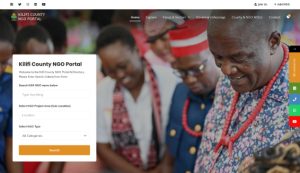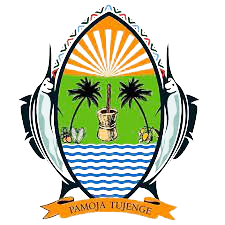Building Capacity for Sustainable Environmental Management
The Technical Assistance and Training service offered by the Kilifi County Department of Water, Environment, Climate Change & Forestry is designed to empower communities, local organizations, and stakeholders with the knowledge, skills, and resources needed to manage and protect natural resources effectively. Through tailored training programs and hands-on technical support, we ensure that our partners are equipped to implement sustainable practices and contribute to the county’s environmental goals.
Key Features
1. Tailored Training Programs
Environmental Management Training
We provide comprehensive training on environmental management practices, including waste management, water conservation, pollution control, and sustainable land use. These programs are tailored to meet the specific needs of different groups, from local farmers to municipal workers.
Climate Change Adaptation Workshops
Our climate change adaptation workshops focus on teaching communities how to cope with and mitigate the impacts of climate change. Topics include drought-resistant farming techniques, water resource management, and disaster preparedness.
Forestry and Biodiversity Conservation
We offer specialized training in forestry management, including tree planting, forest conservation, and biodiversity protection. These sessions are designed to promote sustainable forest use and enhance local ecosystems.
2. On-Site Technical Assistance
Project Implementation Support
We provide on-site technical assistance to communities and organizations involved in environmental and forestry projects. Our experts offer guidance on project planning, resource allocation, and the implementation of best practices to ensure successful outcomes.
Maintenance and Troubleshooting
We assist with the maintenance of environmental management systems, such as irrigation setups, borehole operations, and waste management facilities. Our team helps identify and address technical issues, ensuring that systems operate efficiently and sustainably.
Sustainable Agriculture Techniques
Our technical assistance extends to supporting farmers with sustainable agriculture techniques, including soil conservation, crop diversification, and organic farming practices. This support helps increase agricultural productivity while protecting the environment.
3. Capacity Building Initiatives
Strengthening Local Institutions
We work with local institutions, such as community-based organizations and cooperatives, to build their capacity for managing environmental and forestry projects. This includes training in project management, financial planning, and leadership development.
Knowledge Transfer and Best Practices: Our programs emphasize the transfer of knowledge and best practices from experts to community members. We conduct training-of-trainers sessions to create a multiplier effect, where trained individuals can pass on their knowledge to others in their communities.
Resource Mobilization
We offer guidance on resource mobilization strategies, helping local groups access funding, grants, and technical resources to support their environmental initiatives.
4. Monitoring and Evaluation Training
Data Collection and Analysis
We train community members and organizations in data collection and analysis techniques essential for monitoring environmental and forestry projects. This training ensures that stakeholders can track progress, assess impacts, and make informed decisions.
Performance Measurement
Our programs include training on performance measurement, enabling local groups to evaluate the success of their projects against set goals and objectives. This helps in identifying areas for improvement and ensuring accountability.
Reporting and Documentation
We provide training on how to document and report project outcomes effectively. This includes creating progress reports, case studies, and success stories that can be shared with stakeholders and used to secure additional support.
4. Technical Resource Development
Guidelines and Toolkits
We develop and distribute guidelines, toolkits, and manuals that provide step-by-step instructions on various environmental management practices. These resources serve as reference materials for communities and organizations, ensuring that they have the information they need to succeed.
Demonstration Projects
We establish demonstration projects that showcase best practices in environmental management, forestry, and climate change adaptation. These projects serve as learning sites where community members can observe and replicate successful techniques in their own initiatives.
Access to Expert Networks
We connect communities and local organizations with networks of environmental experts, researchers, and practitioners. These networks provide ongoing support, advice, and opportunities for collaboration on environmental projects.
5. Livelihoods Training
Eco-Friendly Enterprise Development
We offer training on developing eco-friendly enterprises, such as beekeeping, eco-tourism, and sustainable fishing. These enterprises provide income-generating opportunities while promoting environmental conservation.
Value Chain Enhancement
Our training programs include strategies for enhancing value chains in agriculture, forestry, and fisheries. This involves improving production, processing, and marketing practices to increase profitability and sustainability.
Skills Development for Youth and Women
We focus on empowering youth and women by providing them with skills training in environmental management and sustainable livelihoods. This helps create job opportunities and supports community development.
6. Continuous Support and Follow-Up
Ongoing Mentorship
We offer ongoing mentorship and coaching to individuals and groups who have participated in our training programs. This support helps them apply what they have learned and overcome challenges they may encounter in their projects.
Adaptive Training Approaches
We continuously assess the effectiveness of our training programs and adapt them to meet evolving needs. This ensures that our training remains relevant and impactful, even as environmental challenges change over time.
Feedback Mechanisms
We establish feedback mechanisms to gather input from participants on the quality and relevance of our training programs. This feedback helps us refine our services and address any gaps in knowledge or support.
The Technical Assistance and Training service is a cornerstone of our efforts to build local capacity for sustainable environmental management in Kilifi County. By providing communities and organizations with the tools, knowledge, and support they need, we empower them to take an active role in protecting our natural resources and enhancing their livelihoods. Through continuous engagement and adaptive learning, we ensure that our training programs make a lasting impact on the people and environment of Kilifi County.








